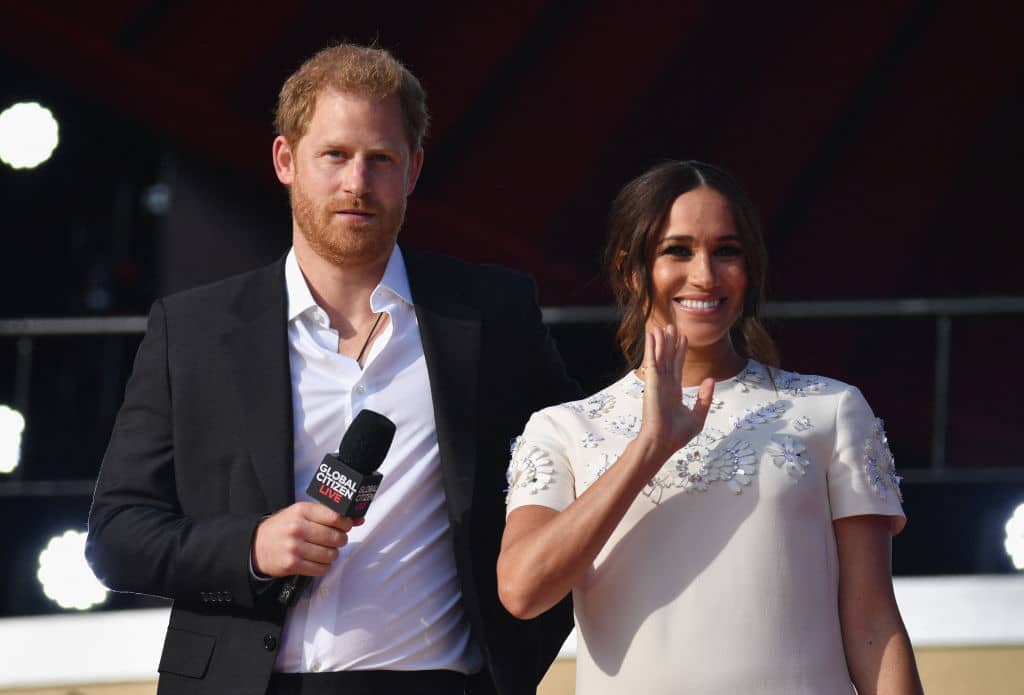I’m boycotting Spotify. I am doing this for the same reason as I don’t have a Netflix subscription: I refuse to subsidise the efforts by Harry and Meghan to monetise their royal fame. If either company terminates its relationship with the couple I will consider using its services, but for the moment I will stick to YouTube.
But no, it wouldn’t be a problem for me that Spotify hosts the Joe Rogan podcast – something which I admit I have never listened to, but which seems to have upset Harry and Meghan, as well as Neil Young and Joni Mitchell. The day we banish people from spouting unpopular opinions, even nutty ideas, is the day that we submit to being ruled by a tyranny of officially-sanctioned experts. Putting up with misinformation is the price we have to pay for being able to receive very important contrarian ideas. No one should forget that we heard about Covid for the first time thanks to a Chinese doctor who was prepared to act as a whistleblower and tell the world about a novel disease that the authorities would rather have kept suppressed.
The day we banish people from spouting unpopular opinions is the day that we submit to being ruled by a tyranny of officially-sanctioned experts
Since Covid and climate change, the celebritariat seem to have got it into its head that there is one set of incontrovertible beliefs that constitute ‘the science’ and which only nasty right wing, Trump-like people would dare question.
Their conversion to science takes some getting used to – given that it wasn’t very long ago that celebrities were the chief purveyors of anti-scientific mumbo jumbo. It was the celebritariat who were swearing by miracle cures, colonic irrigation and the rest. Neil Young himself has a long history of jumping on the anti-scientific bandwagon that is the anti-GM food campaign. Had Spotify sided with him rather than with Joe Rogan it would presumably, for the sake of consistency, have had to ban his 2015 album The Monsanto Years because of its scaremongering lyrics about ‘poison-ready’ patented seeds. There is no credible evidence that eating GM crops has ever done anyone harm.
One of Rogan’s crimes appears to be holding the view that vaccinating young people might not be worth the risk. Is that really such an outrageous view to hold? It is, after all, a view held by our own government on the AstraZeneca vaccine – which has said the under-40s should ideally be given a different vaccine. Moreover, for many months under 18s were excluded from the British vaccination programme altogether. So why does it suddenly become an unacceptable opinion to suggest that 20-year-olds would be better off not having the vaccine as well?
It is true that misinformation has caused damage, such as with the campaign against the MMR vaccine 20 years ago, which reduced the number of children protected against measles. But then that originated in a paper published by the respected medical journal the Lancet, not a right-wing podcast. There is a genuine level of uncertainty whenever a novel medical treatment is introduced. The MMR scare may have turned out to be unsupported by evidence; but then again the world was grateful to the Australian doctor William McBride who first blew the whistle on Thalidomide in 1961.
No drug trial based on observing a few thousand people over a few months can pick out possible rare, long-term effects. With Covid vaccines, as with any drug, we are taking a calculated risk. That is why, for all the anti-vaxxer nonsense on the internet, we need to keep a keen eye out for any potential side-effects in the wider population – and why we shouldn’t bully people who have decided that they don’t want a Covid vaccine.







Comments